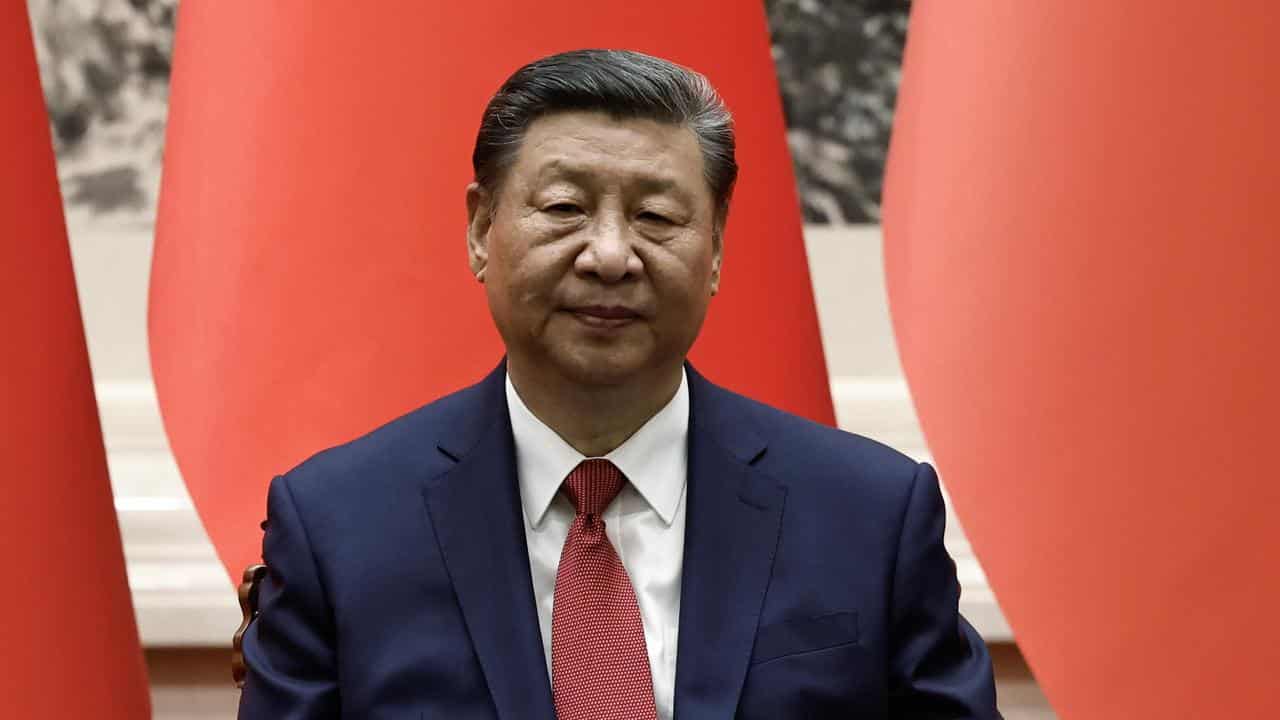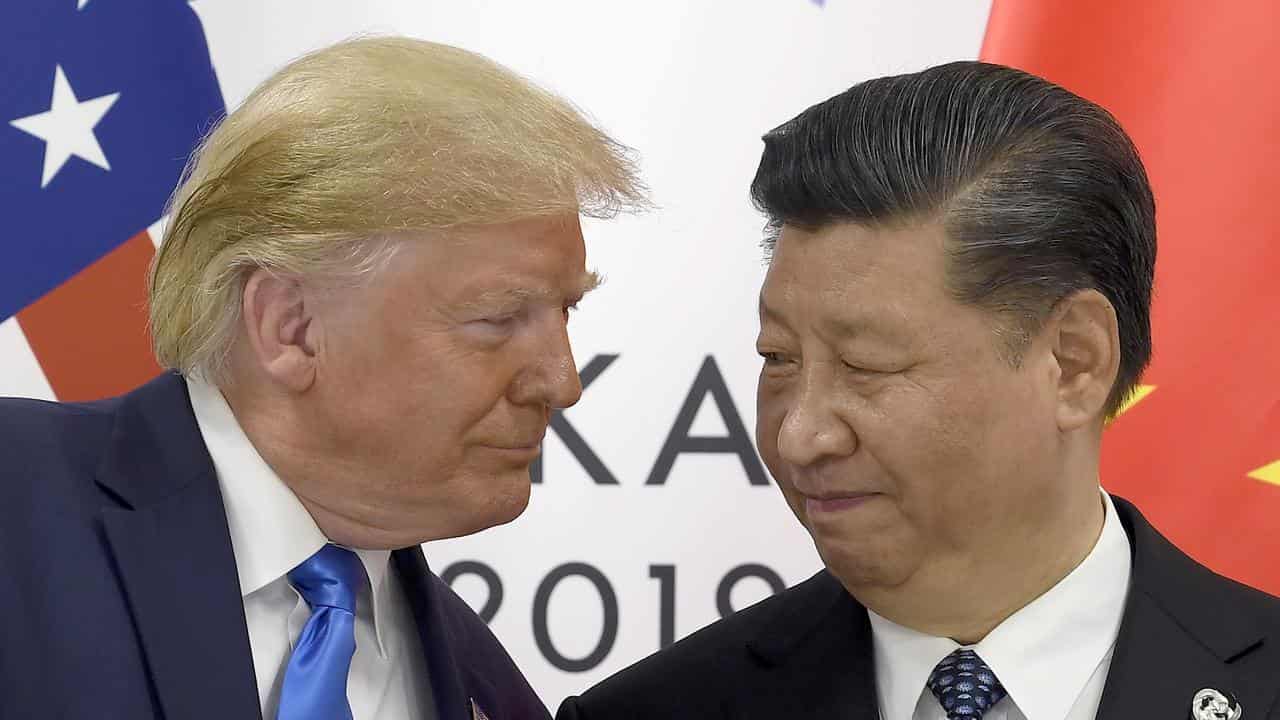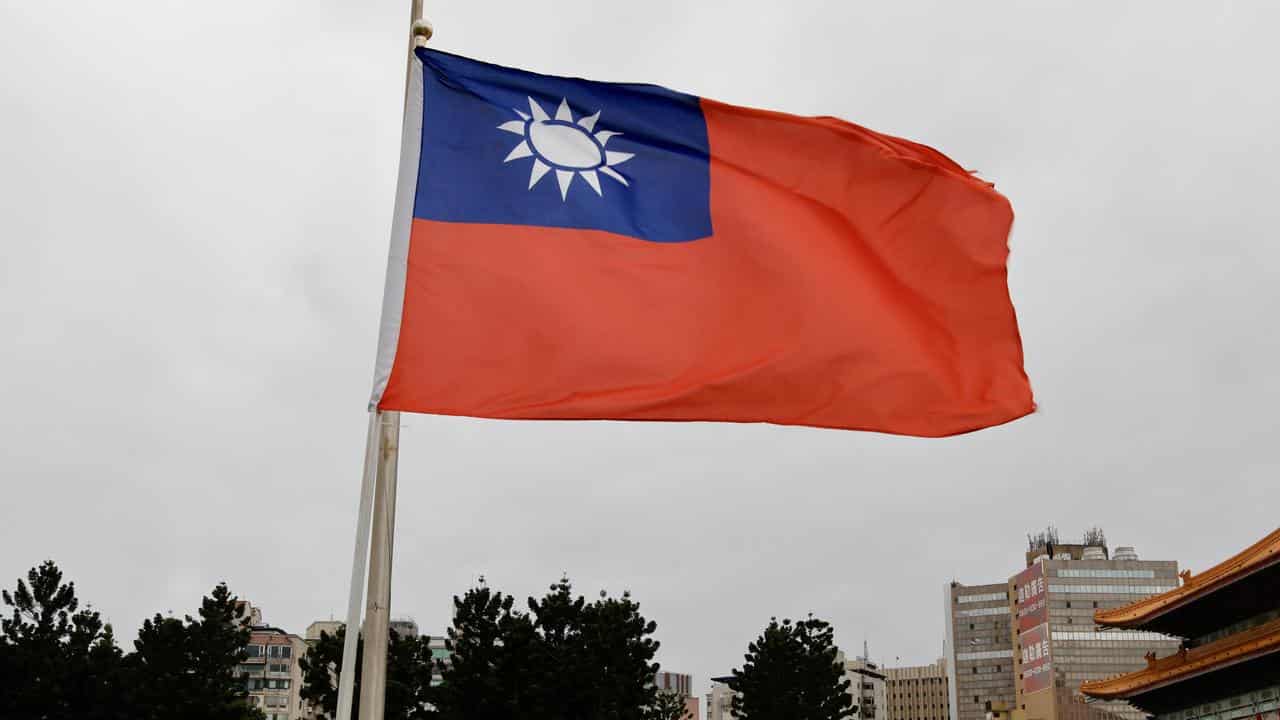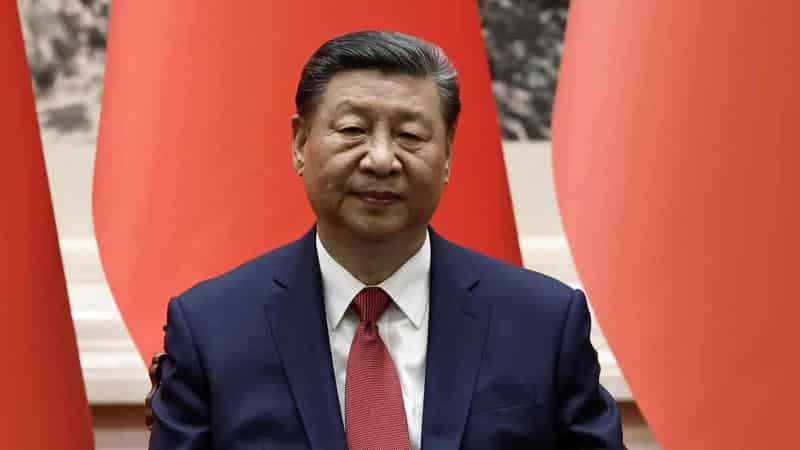
Chinese President Xi Jinping has congratulated Donald Trump on his victory in the US presidential election, as he called for co-operation rather than confrontation.
Xi said history has shown that Washington and Beijing gain from co-operation and lose from confrontation, according to the Chinese state news agency Xinhua.
A stable and healthy relationship between Beijing and Washington is also what the international community expects, the Chinese leader said.
China hopes differences of opinion will be properly managed and mutually beneficial co-operation expanded, Xinhua reported.
US broadcaster CNN reported that Trump and Xi spoke on the phone.
In the call, Xi expressed hope that "the two sides will uphold the principles of mutual respect, peaceful coexistence and win-win co-operation, strengthen dialogue and communication, properly manage differences, expand mutually beneficial co-operation, and find a correct way for China and the United States to get along in the new era."

Echoing Xi's call for stability, the commerce ministry said China was willing to jointly develop healthy economic and trade ties the United States.
China is willing to expand co-operation to benefit both countries, a ministry spokesperson said, when asked at a regular press conference about the prospect of more US tariffs, setting aside for now any suggestion of potential retaliation.
Chinese Vice President Han Zheng also called the US Vice President-elect JD Vance to extend his congratulations to him, Xinhua said.
Diplomatic relations between the US and China are tense. Washington makes serious accusations against Beijing, including human rights violations, unfair trade practices, and illegal territorial claims in the South China Sea.
Beijing, in turn, accuses the United States of deliberately hindering its economic development with sanctions and tariffs, and of interfering in its internal affairs as a hegemonic power.
Trump adopted a hard line on China during his first term in office. During the election campaign, he threatened to impose further tariffs on Chinese products, which could have a massive impact on world trade.
Da Wei, director of the Centre for International Security and Strategy at Tsinghua University in Beijing, said Trump's victory "may pose a relatively large challenge to Sino-US relations" based on his campaign policy proposals and actions in his previous term.
"Due to Trump's high unpredictability, I think it is difficult for China to say that there is a fully formed plan to do "x" when Trump comes to power.
"It also depends on what policies the Trump administration implements."
Trump has proposed tariffs on Chinese imports of more than 60 per cent and ending China’s most-favoured-nation trading status.
Analysts say the prospect of a trade war has rattled China's leadership.
China sells goods worth more than $US400 billion ($A607 billion) annually to the US and hundreds of billions more in components for products Americans buy from elsewhere.
"Beijing is particularly wary of a potential revival of the trade war under Trump, especially as China currently faces significant internal economic challenges," Zhao said.
"China also expects Trump to accelerate the decoupling of technologies and supply chains, a move that could threaten China's economic growth and indirectly impact its social and political stability."
In response, China is likely to intensify its push for greater technological and economic self-sufficiency, while feeling more pressure to bolster economic ties with countries like Russia, he said.

China is likely to shore up ties with the Global South, Europe and northeast Asian countries in the event of a Trump win, given his "transactional, isolationist, anti-globalist and anti-multilateral foreign policy", Wong said.
Trump has unnerved democratically governed Taiwan by saying it should pay Washington for its defence and that it had taken US semiconductor business.
"The Biden administration applied high-pressure tactics to China on Taiwan, with US troops stationed in Taiwan and even giving weapons to Taiwan ... in a huge break with the former Trump administration's Taiwan policy," said Shen Dingli, an international relations scholar in Shanghai.
Washington approved a $US2 billion arms sale to Taiwan in October.
"Trump is not too likely to give Taiwan the same support in future."
with EFE and DPA









